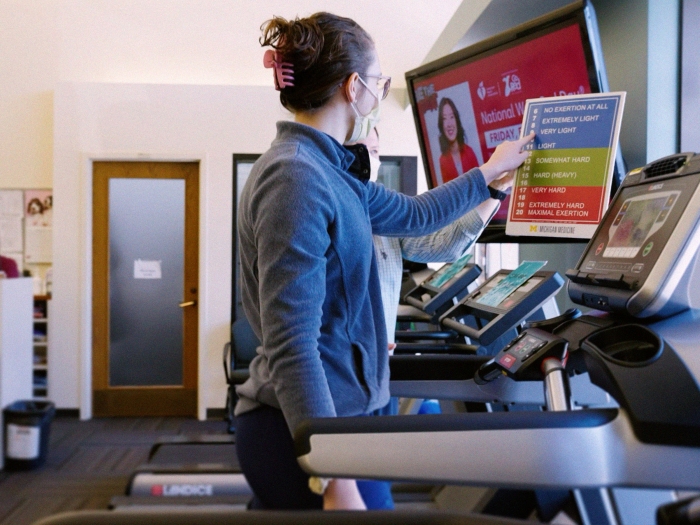Increasing the number of virtual appointments may help overcome barriers in access to medical nutrition therapy
12:36 PM
Author |

Despite an end to the national public health emergency in May 2023, the use of telehealth remains high, with over 20% of American adults taking appointments online.
These visits include video calls with registered dietitian nutritionists, who have a critical role in helping patients take on lifestyle changes through medical nutrition therapy.
With a focus on the changing digital landscape, researchers at Michigan Medicine found that telemedicine patients with hyperlipidemia — an excess of cholesterol or fats in the blood — experienced similar positive health benefits compared to those who had in-person visits.
The results are published in the Journal of Clinical Lipidology.
“This study reinforces the idea that comparable clinical outcomes can be achieved using the virtual format,” said Shannon Zoulek, M.D., first author and resident physician at University of Michigan Health.
“Improving cholesterol levels may reduce cardiovascular events, and having additional options to access treatment will benefit patients who seek treatment.”
Examining nutritional visits
Researchers assessed short term outcomes for over 250 patients seen by a registered dietitian at the U-M Health Frankel Cardiovascular Center’s Preventative Cardiology Clinic between early 2019 and late 2022.
Whether virtual or in-person, patients receiving medical nutrition therapy experienced significant decreases in LDL, or “bad”, cholesterol and non-HDL cholesterol, both of which are known to increase the risk of cardiovascular disease.
The research team found no significant difference between the two appointment types. However, Zoulek says, more research is needed to determine the scenarios in which a virtual or in-person visit may be more beneficial.
“Access to nutrition care is crucial, and our study shows just how effective virtual care can be for helping improve cholesterol levels,” said co-author Beverly Kuznicki, R.D.N., M.A., cardiovascular dietitian and allied health intermediate supervisor at U-M Health.
“Virtual care welcomes the dietitian into the patient’s kitchen where the two can work together to come up with a nutrition plan which focuses on foods that are already in their pantry and refrigerator.”
Despite challenges to remote health care, including access to devices and technological literacy, a national survey published in 2023 found that telehealth visits may improve access for minorities and patients with lower socioeconomic statuses.
“The expansion of virtual care can be considered as a silver lining to the COVID-19 pandemic,” said senior author Eric J. Brandt, M.D., M.H.S., FACC, director of preventative cardiology at the U-M Health Frankel Cardiovascular Center.
“Virtual care has many benefits that can help overcome some barriers to traditional care. It can help increase access to individuals that have transportation limitations or live far away from in-person care centers.”
Additional authors include Navkiranjot Kaur, M.D., and Jackson Shriver, M.D., of University of Michigan
Paper cited: “Comparison of virtual vs Face-to-face medical nutrition therapy in patients with hyperlipidemia,” Journal of Clinical Lipidology. DOI: 0.1016/j.jacl.2023.11.005

Explore a variety of health care news & stories by visiting the Health Lab home page for more articles.

Department of Communication at Michigan Medicine

Want top health & research news weekly? Sign up for Health Lab’s newsletters today!





